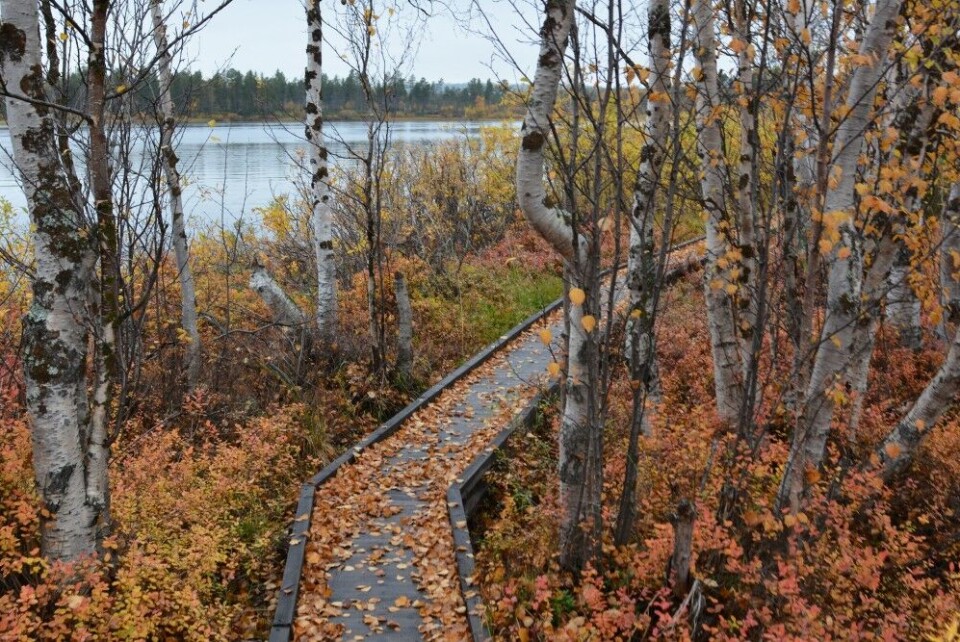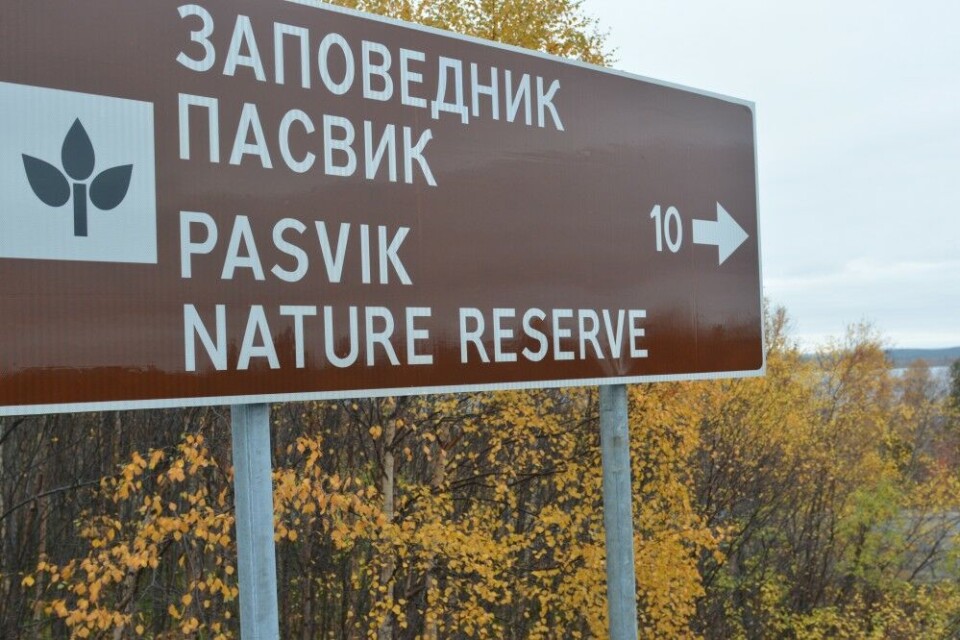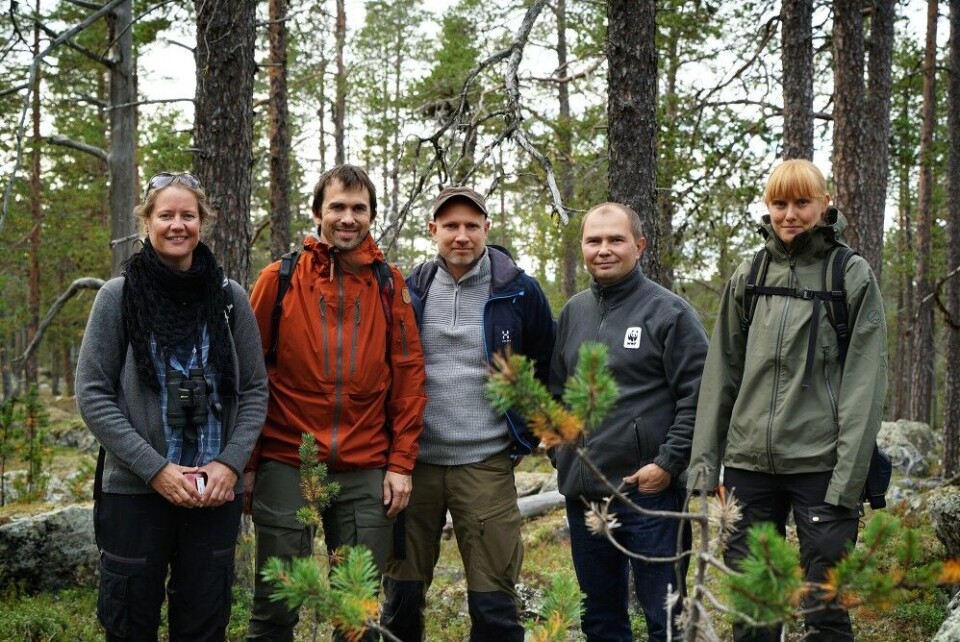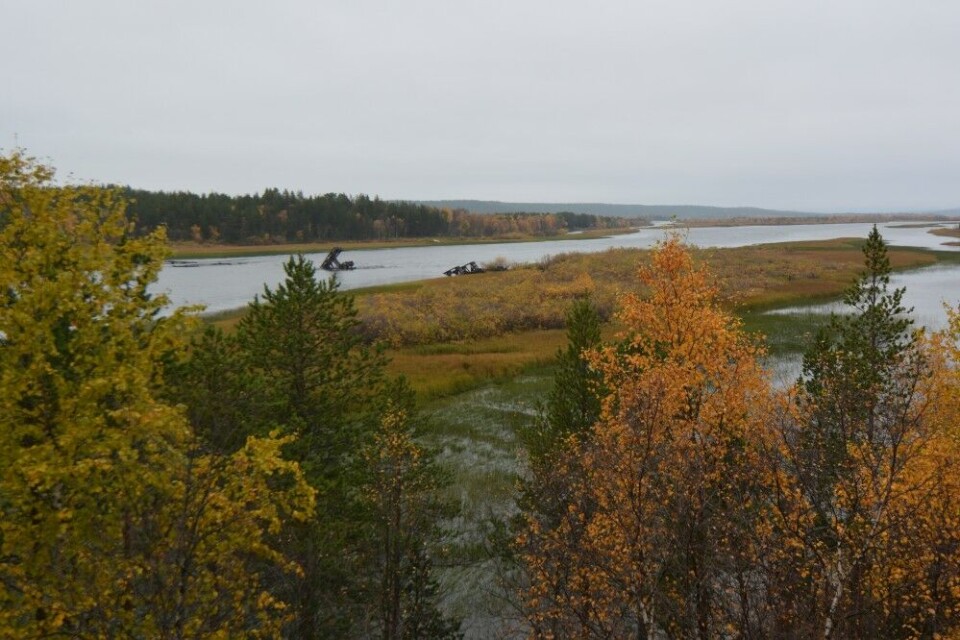
WWF urges Norway to protect its taiga forests to help fight climate change
The boreal forest is even more crucial for the world to store carbon than the tropical rainforest.
p.p1 {margin: 0.0px 0.0px 0.0px 0.0px; font: 11.0px ‘Helvetica Neue’; color: #000000; -webkit-text-stroke: #000000}span.s1 {font-kerning: none}
p.p1 {margin: 0.0px 0.0px 0.0px 0.0px; font: 11.0px ‘Helvetica Neue’; color: #000000; -webkit-text-stroke: #000000}span.s1 {font-kerning: none}
At 68°N, Europe’s northernmost boreal forest, known as taiga in Russia, is found in the border areas of the Pasvik valley where Norway, Finland and Russia have protected parts of the old-growth forest.
p.p1 {margin: 0.0px 0.0px 0.0px 0.0px; font: 11.0px ‘Helvetica Neue’; color: #000000; -webkit-text-stroke: #000000}p.p2 {margin: 0.0px 0.0px 0.0px 0.0px; font: 11.0px ‘Helvetica Neue’; color: #000000; -webkit-text-stroke: #000000; min-height: 12.0px}span.s1 {font-kerning: none}
Covering an area of 119 square kilometers, Øvre Pasvik National Park on the Norwegian side of the borders, is a unique western arm of the Siberian taiga forest, the largest forest covered area on the northern hemisphere.
Talking protection of biodiversity and the forests’ key role in storing carbon, WWF representatives from Finland, Russia and Norway now highlight Pasvik to be a leading cross-border star example for conservation.
«It is important that Norway speeds up the process to protect more of the Pasvik boreal forest,» says biologist Trude Myhre with World Wide Fund for Nature.

p.p1 {margin: 0.0px 0.0px 0.0px 0.0px; font: 11.0px ‘Helvetica Neue’; color: #000000; -webkit-text-stroke: #000000}p.p2 {margin: 0.0px 0.0px 0.0px 0.0px; font: 11.0px ‘Helvetica Neue’; color: #000000; -webkit-text-stroke: #000000; min-height: 12.0px}span.s1 {font-kerning: none}
Talking protection of biodiversity and the forests’ key role in storing carbon, WWF representatives from Finland, Russia and Norway now highlight Pasvik to be a cross-border star example for conservation.
She says Norway can’t expect Russia to protect more forest if not doing so itself. Suggestions to expand Pasvik National Park have been on the ministry’s table for years, but little has happened.
«The minister of environment, Ola Elvestuen, here has a brilliant chance to show internationally that Norway takes action and responsibility also at home,» says Trude Myhre to the Barents Observer. She points to the fact that Norway grants billions of kroner to have other countries protect their rainforest to save the global climate.

The boreal forest stores enormous quantities of carbon, more than the rainforest and temperate forest combined. Boreal forests are found across the north from Scandinavia, via Russia and Japan, to Canada and Alaska. In total, it represents 29% of the world’s forest cover.
More important, the WWF representatives stress, the matrix of forest, swamp and lakes is a giant defense against climate changes. «It is pulling carbon dioxide out of the atmosphere, as well as storing huge amounts of carbon beneath the ground,» Myhre explains. She says logging, or other industrial interference would destruct the important carbon sinks.
«Often, after logging, new trees are planted eliminating the biodiversity found in old-growth forest like here in the Pasvik valley.»
The WWF-biologist says the wilder effects seen triggered by climate changes, the more important is biodiversity to keep the nature robust against changes.
p.p1 {margin: 0.0px 0.0px 0.0px 0.0px; font: 11.0px ‘Helvetica Neue’; color: #000000; -webkit-text-stroke: #000000}p.p2 {margin: 0.0px 0.0px 0.0px 0.0px; line-height: 15.0px; font: 12.8px Arial; color: #222222; -webkit-text-stroke: #222222; background-color: #ffffff}p.p3 {margin: 0.0px 0.0px 0.0px 0.0px; line-height: 15.0px; font: 12.8px Arial; color: #222222; -webkit-text-stroke: #222222; background-color: #ffffff; min-height: 15.0px}span.s1 {font-kerning: none}
Andrey Shegolev with WWF Russia’s Arkhangelsk office is surprised to see how little action Norway takes at home.
“For a country so well known for its commitment to save the tropical rainforests, I am surprised that Norway has protected so little of its own forest”, says Andrey Shegolev.
He stresses the importance of understanding the the northern forests’ role in global climate.
“Everyone has heard about the importance of the tropical rainforest, but too few knows that the northern forest is the largest carbon storage in forest worldwide. So what we do with our northern forest is important for the world’s climate.”
p.p1 {margin: 0.0px 0.0px 0.0px 0.0px; font: 11.0px ‘Helvetica Neue’; color: #000000; -webkit-text-stroke: #000000}p.p2 {margin: 0.0px 0.0px 0.0px 0.0px; font: 11.0px ‘Helvetica Neue’; color: #000000; -webkit-text-stroke: #000000; min-height: 12.0px}span.s1 {font-kerning: none}
Øvre Pasvik National Park has its western border running along the border to Finland where the Vätsäri Wildernesss Area is found. On the Russian side of the border, Pasvik Zapovednik forms the eastern part of the trilateral protection area named Pasvik-Inari Trilateral Park.

Up north, due to the cold, the forest has a very slow-growing life cycle creating a unique flora and fauna.
Dr. in forest ecology, Panu Kunttu with WWF’s Finnish nature program says expanded protection is needed for the sake of the highly valuable biodiversity in the area.
«I was very impressed about old-growth forest with many red-listed species in Pasvik. But I was surprised to hear that these great forests are not protected. The national park should be extended to cover also these forest with high value of biodiversity,» Panu Kunttu explains to the Barents Observer.
«Also in general, Norway has much to do in forest conservation. Only 3% of forest in Norway is protected, but the aim should be 17% according to biodiversity agreement of United Nations. Therefore, Norwegian government should increase the budget of nature conservation substantially,” the expert from Finland argues.
Trude Myhre hopes for the Norwegian Government to be more active in protecting the taiga forest. «It is sad to see how Norway has reduced funding to the important work done in the Barents Protected Area Network (BPAN) and the Green Belt ecological network.»
«It sends a wrong signal to a neighboring country like Russia asking them to protect more of Europe’s last coherent old-growth forest, while we reduces our own efforts.»
You can help us…
…. we hope you enjoyed reading this article. Unlike many others, the Barents Observer has no paywall. We want to keep our journalism open to everyone, including to our Russian readers. The Independent Barents Observer is a journalist-owned newspaper. It takes a lot of hard work and money to produce. But, we strongly believe our bilingual reporting makes a difference in the north. We therefore got a small favor to ask; make a contribution to our work.
















